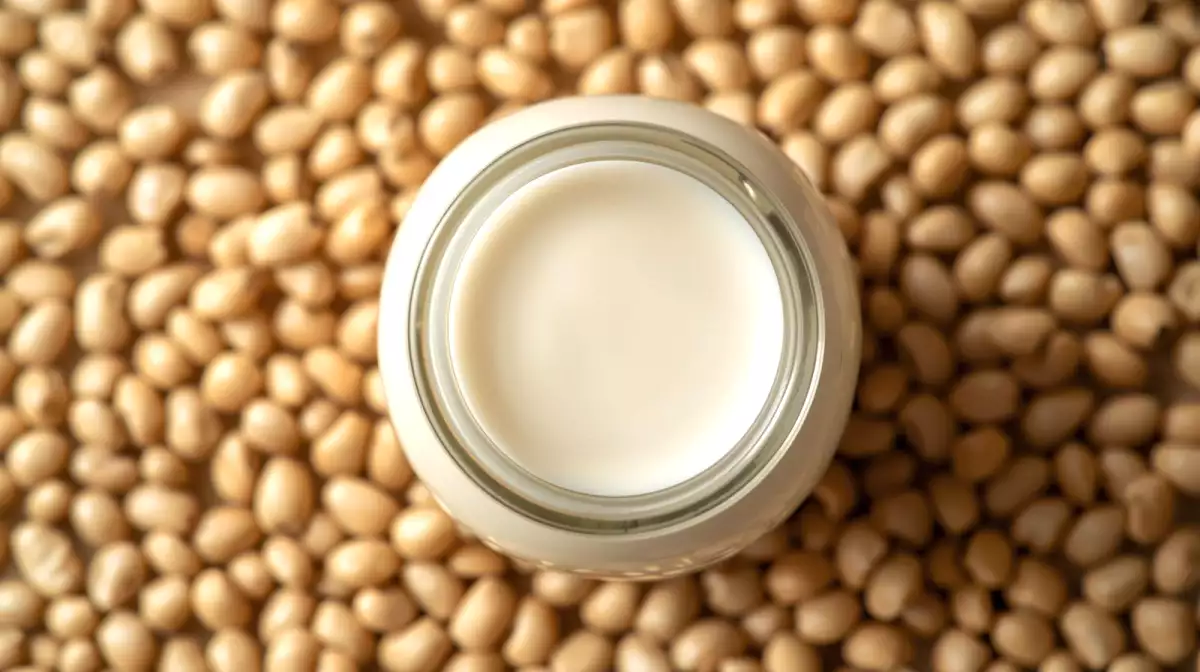Which plant-based milk is healthiest? Let's find out!

Almond, soya, oat, rice... the range of plant-based milks has never been so extensive! But when it comes to eating well, it's hard to know which one to choose. Protein, sugars, vitamins, impact on health and the planet... We decipher it all together, with the help of the latest studies and expert advice.
Why switch to plant-based milk?
More and more adults are swapping cow's milk for plant-based alternatives. The reasons?
- Better digestion for those with lactose intolerance;
- To reduce their carbon footprint, since plant-based production consumes less water and emits fewer greenhouse gases;
- Or simply change your taste and adopt a more plant-based lifestyle.
But beware: "The question of which milk is healthiest depends on your personal needs," reminds Abigail Johnson, a researcher at the University of Minnesota. In other words, it all depends on whether you're looking for more protein, less sugar, or a good calcium intake.
Soy milk: the most nutritionally complete
It's the closest to cow's milk, according to a major American study of 219 plant milks (Journal of Food Composition, 2025). It contains an average of 7 to 8 g of protein per 240 ml, the same as cow's milk, and naturally very little saturated fat.
Soy also contains isoflavones, plant compounds with antioxidant effects, associated with better heart and kidney health. Several studies have even found a link between regular soy consumption and a reduced risk of certain hormone-dependent cancers, such as breast cancer.
Contrary to popular belief, no scientific data has proven a "feminizing" effect of soy on men: a meta-analysis of 38 clinical studies confirmed that there was no significant hormonal impact.
In short: rich in protein, good for the heart, complete and gentle on the digestion - soy ticks almost all the boxes!
Oat milk: the sweetest, most satisfying milk
The reason it's so popular is that it's creamy, naturally slightly sweet and very palatable. Oats contain beta-glucans, soluble fibers that help reduce blood cholesterol and stabilize blood sugar levels.
In terms of nutrition, oat milk provides around 1 to 2 g of protein and 2 g of fiber per 200 ml. It is often enriched with calcium and vitamin D, which compensates for the intake of conventional milk.
On the downside, it can contain more carbohydrates than other plant milks (up to 15 g/200 ml), so we prefer it plain and unsweetened to avoid excess added sugars.
To remember: ideal for breakfast or coffee, it nourishes well and contributes to cardiovascular health.
Almond milk: the lightest (but not the richest).
The darling of Instagrammable lattes has its qualities... and its limits. Very low in calories (around 25 to 40 kcal/200 ml), it contains little protein (often less than 1 g). On the other hand, it contains heart-healthy unsaturated fatty acids and is often enriched with calcium and vitamins B12 and D.
The trouble is, it contains very few almonds: sometimes just 2-3%! The rest is water, a little vegetable oil and stabilizers.
Tip: if you like the subtle taste of almonds, choose it unsweetened and enriched. It's a perfect accompaniment to smoothies and porridges, but won't be enough to cover your protein needs.
Rice milk: the easiest to digest (but beware of sugar)
It's the most fluid, the mildest, and the one that children often digest best. Gluten-free and lactose-free, it's suitable for sensitive stomachs. But... it's also the richest in carbohydrates, with up to 20 g of sugars per 200 ml.
It contains very little protein (less than 1 g/200 ml), so its nutritional composition is less balanced than that of soy or oats. Better to use it occasionally or reserve it for sweet preparations.
Ideal for : cream desserts, cakes, light hot drinks.
And the added oils?
Some vegetable milks contain sunflower or rapeseed oils, added to give a smoother texture. These oils are not dangerous: the quantities are very small (1 to 2 g per glass) and research shows that they present no particular health risk, provided you eat a balanced diet (UCLA Health, 2025).
Experts insist that unless you drink half a liter a day, there's no need to worry.
How to choose your plant milk
Look at the labels. Intakes vary from brand to brand: some versions are enriched with calcium, others are not.
Prefer "unsweetened" versions: a plain plant milk contains an average of 0 to 3 g of sugar, compared with 10 to 15 g for a sweetened version.
Check for vitamin D and B12 enrichment, especially if you're vegan.
Alternate varieties: each milk has its own advantages, and diversity is the best ally for a balanced diet.
In a nutshell
- For protein: soy milk is the most complete.
- For sweetness and satiety: oat milk.
- For lightness: almond milk.
- For digestive tolerance: rice milk.
 Adèle Peyches
Adèle Peyches
Comments